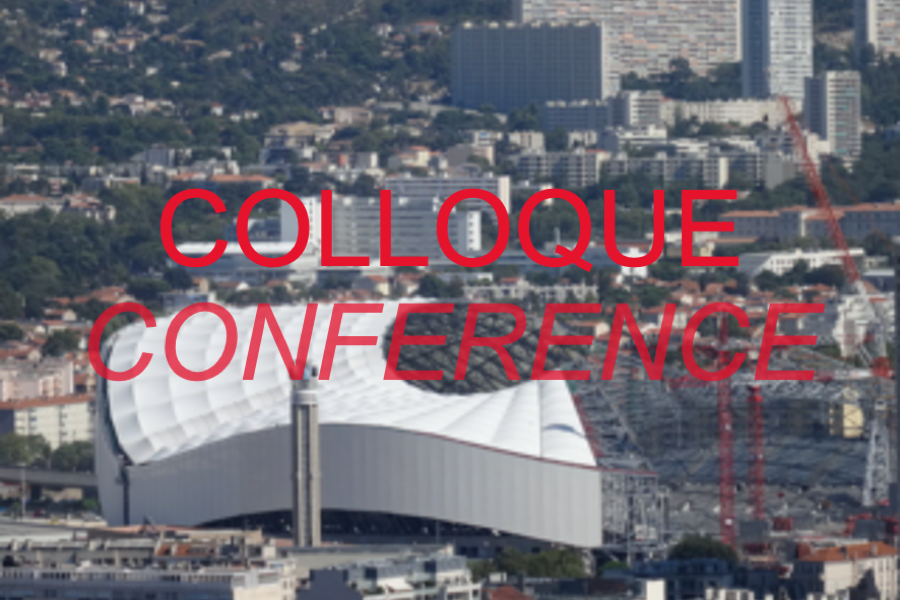
Annual Research Conference of the Indian Institute for Human Settlements, 9th Annual PhD Workshop, 9-11.01.2023
21 October 2022Fonds Bruno Latour – Sciences Po, Appel à candidatures pour des contrats postdoctoraux, 2022
24 October 2022Annual Research Conference of the Indian Institute for Human Settlements, Urban ARC 2023 | Cities in Flux, 12-14.01.2023
The seventh edition of Urban ARC, the Annual Research Conference of the Indian Institute for Human Settlements, will be conducted between 12-14 January 2023, virtually and in person at the IIHS Bengaluru City Campus. The theme for this edition is ‘Cities in Flux’.
The call emphasises the broad spectrum of the nature of flux in and across our cities. Indeed, flux and the organic pathways that it creates in the development and evolution of cities have been the impetus for knowledge production in the Urban. They are influenced by changes in societal settings and inequality, economic processes and structure, social and technical innovation, climate change, political will and/or inaction, and many other factors. These lead more often than not, to ultrastability and the strengthening of the current order or alternatively, dramatic changes in the midst deepening inequality and conflict amidst the great accelerations of the Anthropocene. Knowledge production, through research, practice or tied to Indigenous and Local traditions, has responded to these changes by creating an expanding body of knowledge that attempts to engage and make sense of these complex and systemic changes.
Our current collective moment presents a unique blend of inevitable changes, and consequent challenges, to our practice of knowledge production. Factors like the global pandemic, deepening inequality and poverty, impending ecological overshoot, voluntary and involuntary migration, political turmoil and conflict, have sharpened in intensity, occurred simultaneously and cascaded through urban systems, via new forms of flux.
These economic, political, ecological and social processes have influenced the ways in which one accesses and thinks about housing, livelihoods, food, water, energy and goods supply, health and education services, transportation, ecological and other services – that form the core of urban living. Recent publications show how these already fast-paced changes have been further exacerbated by recent incidents like widespread protests, continuing climate crisis, Brexit, the COVID pandemic,, the Afghanistan crisis, the Ukraine-Russia war, political unrest in Sri Lanka and many other socio-economic and political upheavals, the cities around the world have experienced.
Indeed, the very nature of change in cities is changing as geopolitical conflicts, economic turmoil and inequality continue to overwhelm our often unplanned, organically grown urban spaces. Further, the cities in the global south are disproportionately impacted, due to their differential mandates, capacities and resources to respond to these factors. In recent years, as the vulnerabilities of our cities become conspicuous when faced with a new challenge, the knowledge building around understanding the fluxes our urban spaces undergo have gained increased importance.
Flux in the Urban, however, doesn’t always carry a negative connotation. The very nature of organic change is that it is driven by positive impacts, balanced by negative feedback. This when taken together can span a range of processes from homeostasis to transitions and further to transformational change. Technology for instance, in spite of its often unequal access and spread, has enabled multiple new ways of being in the Urban. The challenge for knowledge production is to critically examine these changes, build a new set of propositional calculus, and ensure voice and agency to engender more just and equitable benefits of these changes.
As a response to changes and resultant fluxes, the nature of our practices needs to be responsive, empathetic, reflexive and well honed. To do better during these moments of choice, we need to fine tune our epistemic practices, and be clearer about the values that underpin them. What to study, where to study, how to study, with whom to co-create knowledge, who gains and who loses from these choices, are key questions that need to be continually asked?
The imperative for research, practice and diverse forms of urban knowledge production is that it has to be innovative, relying on inter- and cross-disciplinary learning, challenge canonical ontology and epistemology that may no longer be fit-for-purpose (e.g. categorisations of the global North and South) and retooling methods to encompass a wide range of investigative strategies.
In keeping up with the need to understand the evolution of cities and the resultant flux, Urban ARC 2023, presents an opportunity for knowledge exchange keeping in mind the need for interdisciplinarity, locally recognised and globally relevant knowledge(s), innovative methods and methods, grounded in the principles of epistemic justice.
The conference invites researchers and practitioners to a space that allows for reflection on their practice(s) and knowledges, against the background of economic, environmental, socio-cultural and political upheaval, using diverse modes of engagement, in ideation, methodology, history, and investigation.
To understand the dynamism that urban spaces experience, the conference encourages bringing together an assortment of methods used, questions asked, geographies covered, disciplines explored, and outcomes reached. We welcome panel as well as paper submissions covering several sectors (e.g. environment and sustainability, planning and policy, among others), disciplines (e.g. social sciences, climate sciences, humanities, architecture, planning) and methods (quantitative, qualitative, mixed methods), using the lens of research, academia, policy and practice. We invite work that looks at both contemporary and historical ways of studying the urban.
Dates and Procedures:
7th November 2022 – Deadline for Submitting Abstracts
25th November 2022 – Announcement of Selected Papers
6th January 2023 – Submission of Completed Papers
12th – 14th January 2023 – Urban ARC 2023
Please note that abstracts have to be submitted with the following guidelines:
- Full title and name and institutional affiliation of the author.
- Complete end-text and in-text referencing in APA format.
Abstracts not in the prescribed format will not be considered for inclusion in the conference proceeding.
Location: Urban ARC 2023 will be held at the Indian Institute for Human Settlements’ Bengaluru City Campus (BCC), 2nd Main Road, Sadashivanagar, Bengaluru – 560 080.

